
Rockets from Gaza hit bus in Israel as thousands demand revenge for deadly Israeli raid
- Funerals held for seven militants, including a Hamas commander, killed in covert Israeli operation overnight
Palestinian mortar fire from the Gaza Strip destroyed a bus on the Israeli side of the border on Monday, wounding at least one person, Israeli television channels said.
Pictures of the bus engulfed in flames and black smoke billowing into the sky were broadcast, as well as flashes of light where explosions marked rocket interceptions by Israel’s Iron Dome air defence system.
Israeli officials said a 19-year-old man was critically wounded when the bus exploded.
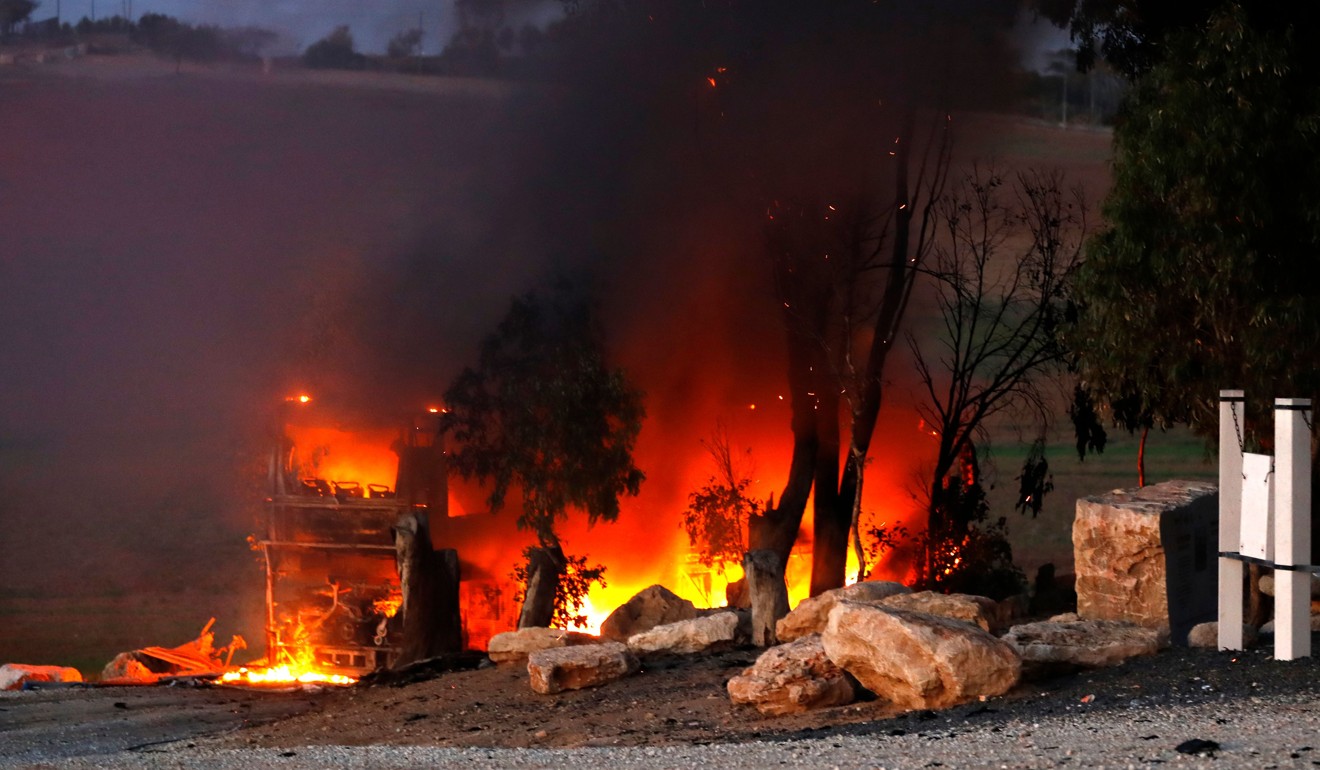
Israel’s military said it was carrying out air strikes “throughout the Gaza Strip” in response to the rocket fire.
Palestinian security sources said a Hamas observation point in Gaza was hit by tank fire.
The military wing of Hamas claimed responsibility for the barrage of rockets.
“The joint command of Palestinian factions announce the beginning of bombardments of the enemy’s settlements with scores of rockets,” the Ezzedeen al-Qassam Brigades group said in a statement.
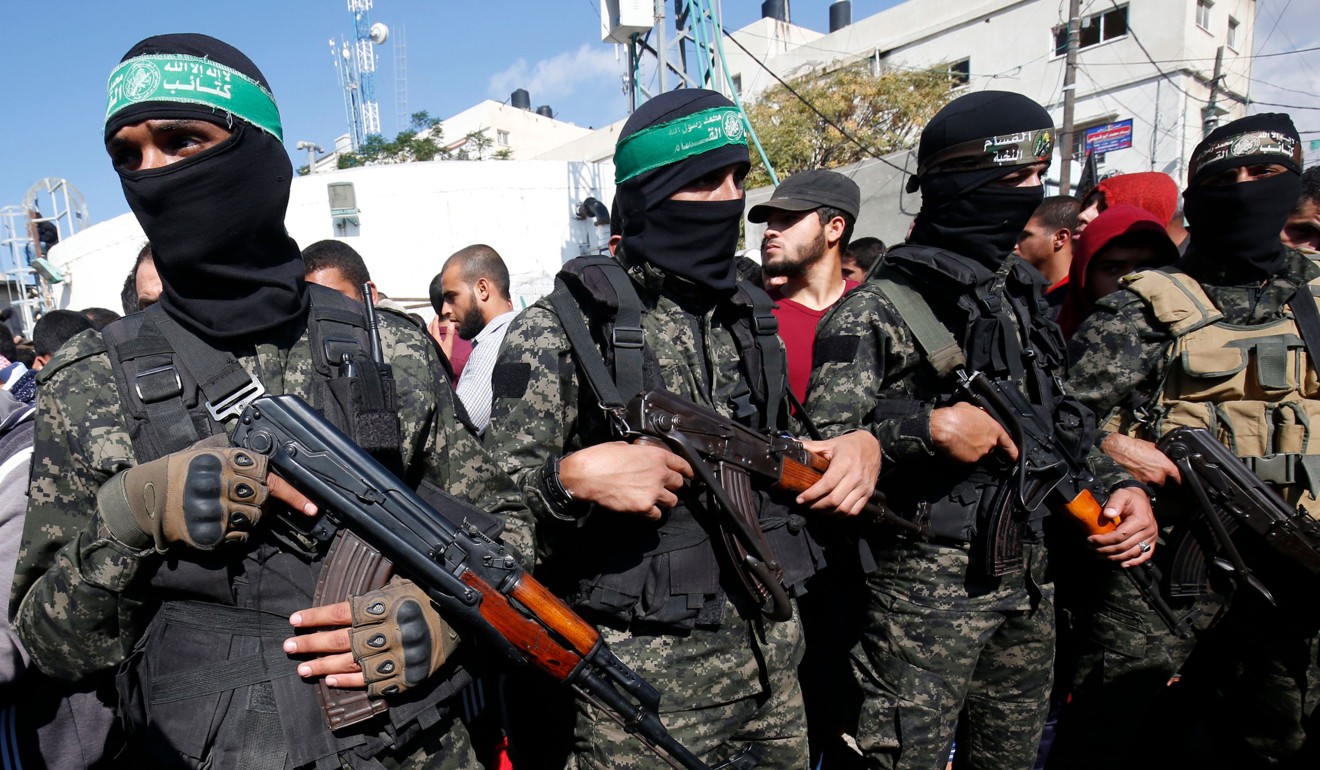
Earlier, thousands of mourners in the Gaza Strip buried seven Palestinian militants killed in an Israeli incursion and the Hamas government launched a feverish security sweep.
Hamas said Israeli undercover forces entered the territory in a civilian vehicle late on Sunday and exchanged fire with Hamas gunmen. The clashes killed an Israeli lieutenant colonel and prompted Israeli air strikes and a salvo of rocket fire from Gaza towards Israel.
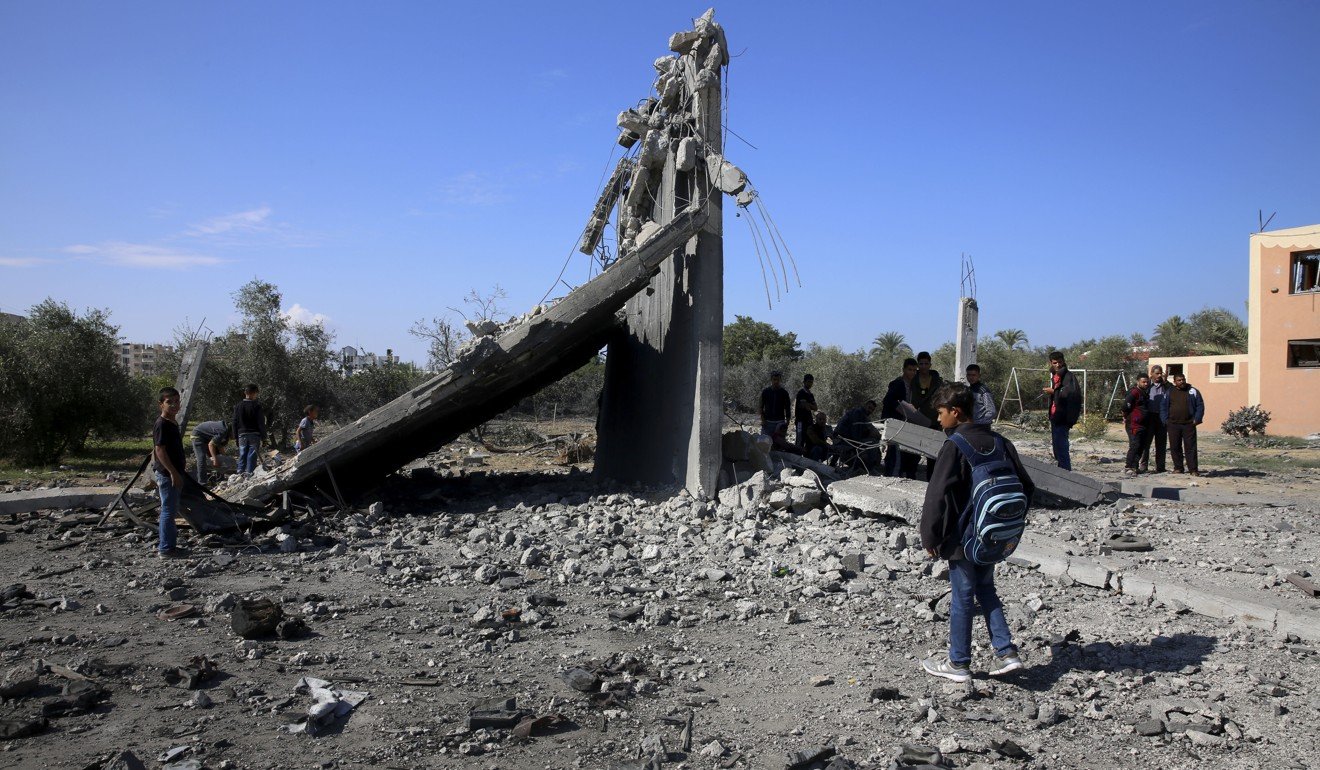
The cross-border fighting came just days after Israel and Hamas reached indirect understandings, backed by Qatar and Egypt, to allow cash and fuel into Gaza. The understandings were meant to be part of a broader effort to alleviate deteriorating conditions in the impoverished territory after 11 years of an Israeli-Egyptian blockade.
It was not clear whether the burst of violence would derail the arrangements.
Israeli Prime Minister Benjamin Netanyahu cut short a visit to Paris because of the flare-up and returned to Israel on Monday for consultations with top security officials.
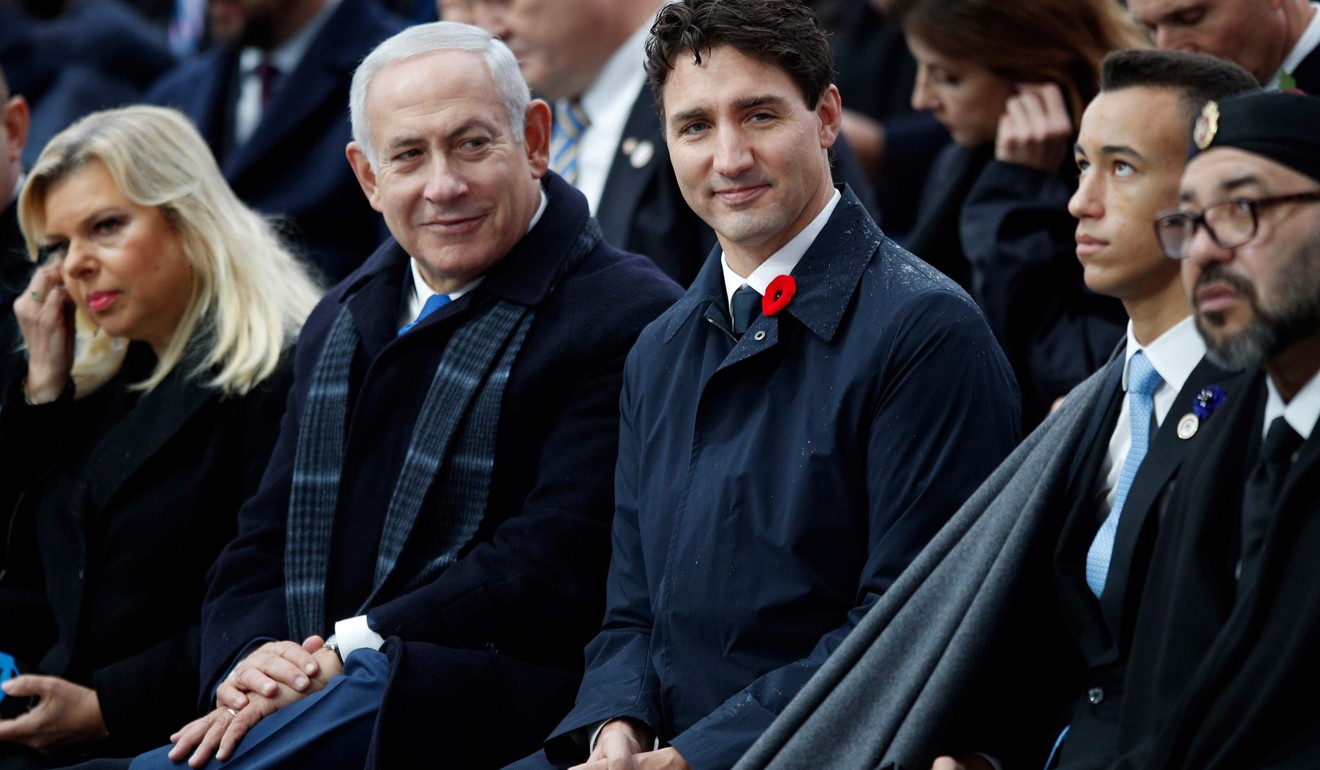
Hamas authorities strengthened security measures after the incident, deploying checkpoints across Gaza in a show of force after what appeared to be a major security breach for the militant group. It also restricted movement through crossings with Israel, preventing foreign journalists, local businessmen and some aid workers from leaving the territory.
Hamas also cancelled a weekly beach protest in northwestern Gaza along the border with Israel. The organisers cited “the ongoing security situation”.
Hamas leader Ismail Haniyeh led a funeral for four militants as masked gunmen in uniforms carried the coffins, wrapped in the flag of Hamas’ armed wing, and mourners chanted “revenge.”
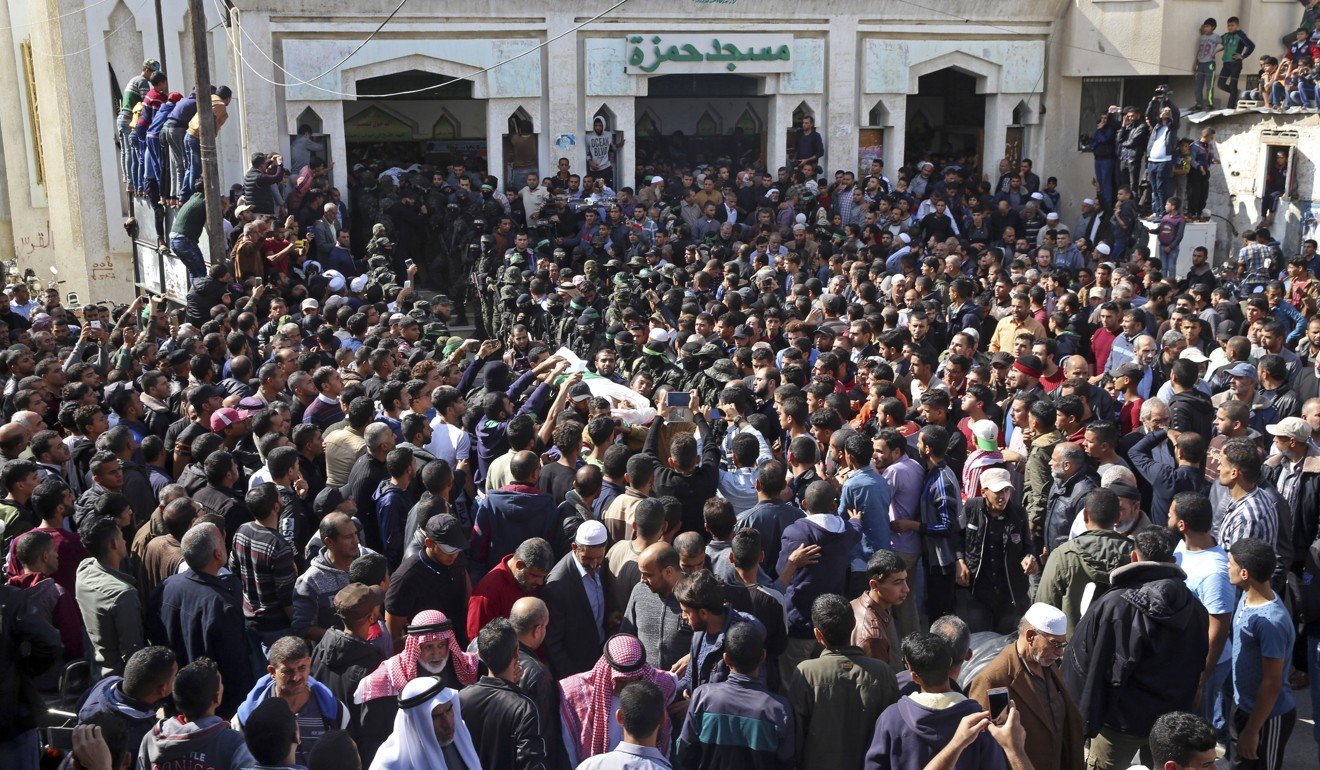
Al-Qassam said in Sunday’s incursion, Israeli undercover forces drove about 3km (2 miles) into southeastern Gaza and shot and killed Nour el-Deen Baraka, a mid-level commander in charge of a sensitive area in the southern Gaza Strip town of Khan Younis. Qassam members discovered the car and chased it, prompting Israeli air strikes that killed several people, the group said.
The empty vehicle apparently used by the Israeli force was reduced to a charred chassis after aircraft fired several missiles at it, leaving a gaping crater in the ground.
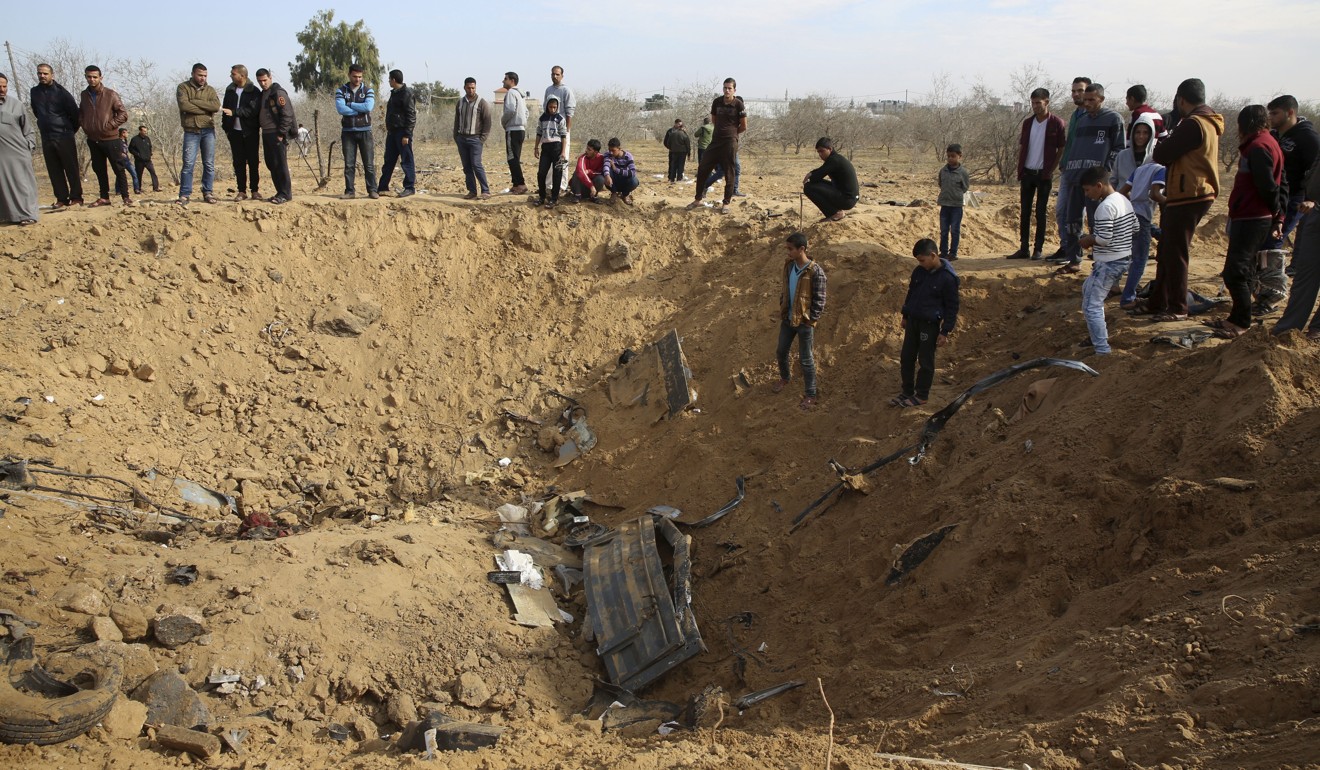
The Israeli military said there had been an exchange of fire during an operation in Gaza, with troops withdrawing from the territory with the help of aircraft. It said that militants then launched 17 rockets from Gaza toward Israeli communities, where school and train service was cancelled in response, and that it had reinforced troops and its aerial defence system along the border after the flare-up.
The military provided few details about the reason for the raid. A spokesman, Lieutenant Colonel Jonathan Conricus, said the operation was “not intended to kill or abduct terrorists but to strengthen Israeli security”. He said the force faced a “very complex battle” and was able to “ex-filtrate in its entirety”.
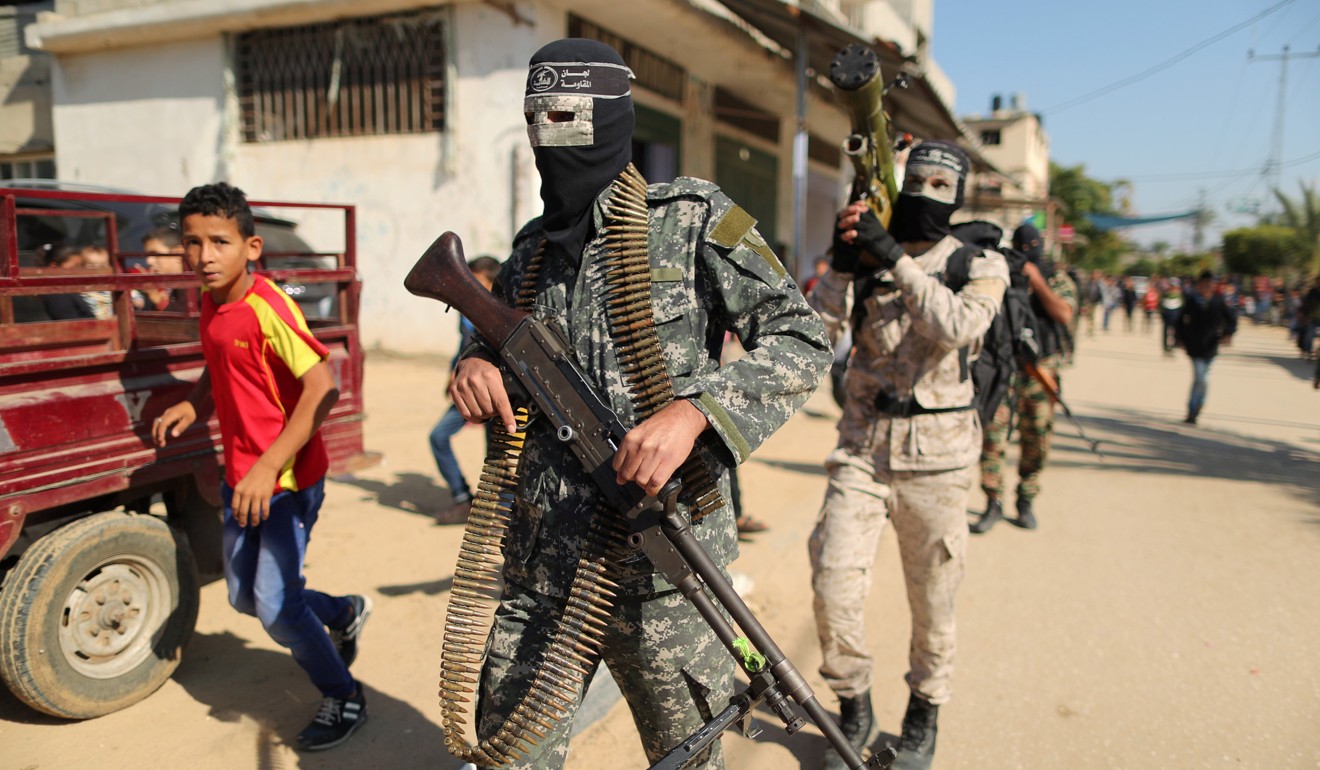
Netanyahu returned to Israel on Monday morning, cutting short a trip to Paris where he was set to meet French President Emmanuel Macron after having took part in ceremonies marking 100 years since the end of the first world war.
In a tweet after his arrival back home, Netanyahu praised the slain officer, whose identity was being kept confidential for security reasons, and said “our forces acted courageously”. The officer’s funeral was being held Monday.
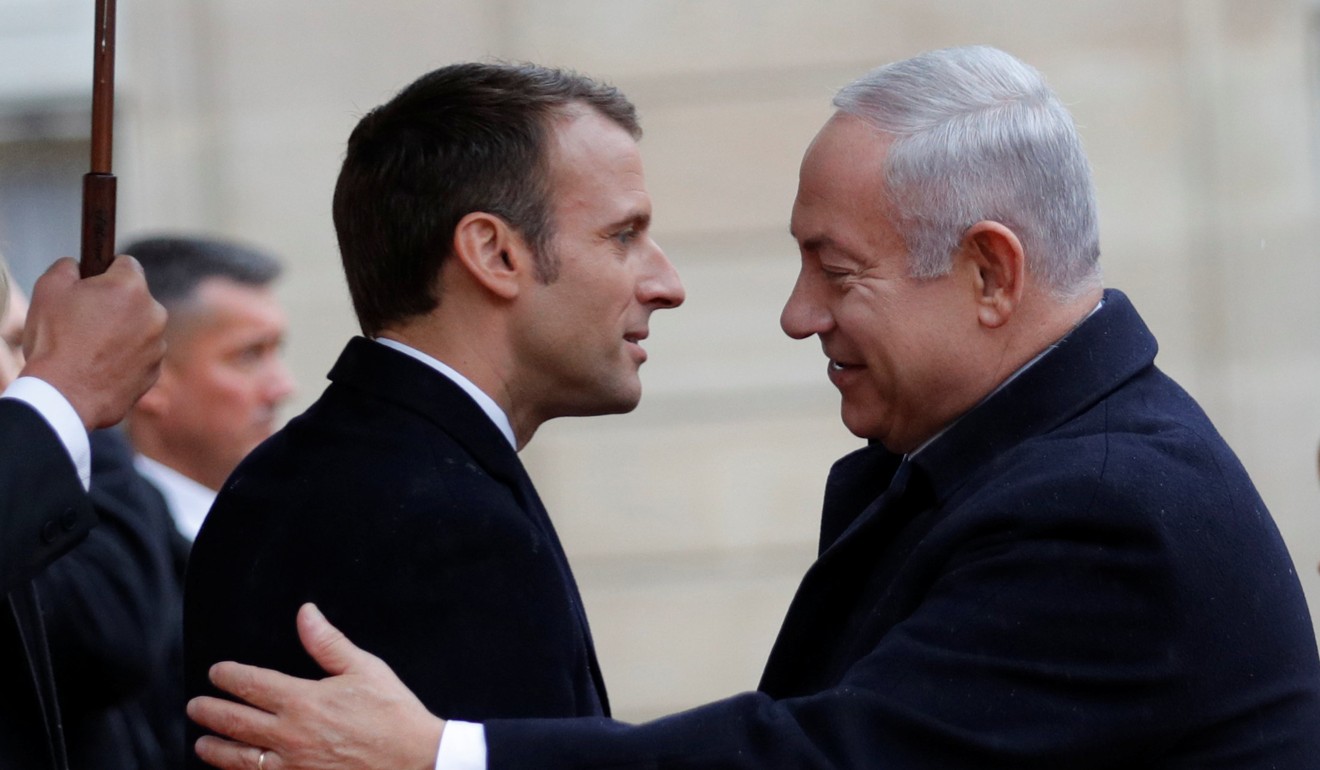
The overnight violence came after several months of confrontations along the Israel-Gaza perimeter fence. Since late March, Hamas has been leading mass marches, with turnout driven by growing despair in Gaza, to try to break the border blockade.
Last week, Israel allowed Qatar to deliver US$15 million in aid to Gaza’s cash-strapped Hamas. Hamas responded by lowering the intensity of the border protest on Friday.
On Sunday, Netanyahu defended his decision to allow through the Qatari cash to Gaza as a way to avert an “unnecessary war”.
Additional reporting by Reuters and Agence France-Presse

